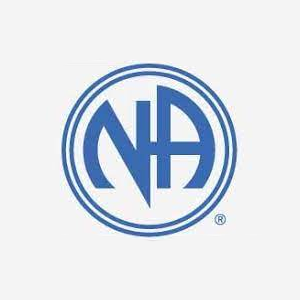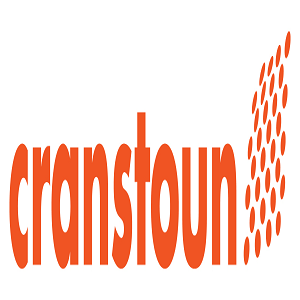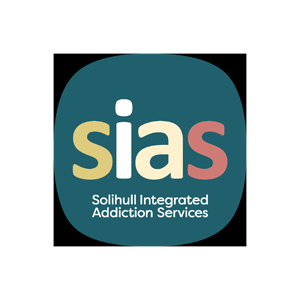Drug & Alcohol Rehab in West Midlands

How Does Rehab Work?
Rehabilitation is a process that assists individuals in working towards restoring balance and mental health. Rehab focuses on addressing the patient holistically with individualised therapy aimed at addressing addictive behaviours. With the guidance of a professional therapist or counsellor, coping strategies are taught and individuals can access much-needed support. Strategies deal with relapse prevention and clients can be assigned to an extended inpatient programme or move to an outpatient programme. With inpatient rehab (residential rehab), individuals will live at the rehab centre for the duration of treatment. Outpatient services are an alternative option in which clients will attend daily/weekly sessions for therapy but will not attend a full-time programme. There are both free and paid outpatient services available within the UK.
What Happens During Residential Rehab?
The decision to look for rehab for drug and alcohol addiction is actually a courageous one and can be supported with individualised rehabilitation services. We offer a breakdown of what you can expect from the process of drug and alcohol rehab.
Rehabilitation starts off with an assessment done by an experienced medical professional. The goal is to investigate your history of substance use, and whether pre-existing medical conditions are present. This includes any comorbidities such as mental health disorders that require specialised treatment.
An assessment is followed by detoxification. Detox is a structured process and is performed within residential rehab or at home with guidance from a medical professional (outpatient services). During this phase, individuals abstain from drugs and/or alcohol use until the drug/alcohol is no longer present in the body. Because of the challenges associated with withdrawal, a medically supervised detox from drugs and alcohol is advised.
While attending rehab you will receive therapy. Therapy can be delivered on an inpatient or outpatient basis. Therapy consists of individual counselling including Cognitive Behavioural Therapy, skill-building and group therapy.
1. Assessment

For any individual entering rehabilitation, a medical assessment must be performed. It is a standard procedure meant to put your mind at ease as the specialist looks for specific behaviours, previous mental health conditions, and general health. In a residential programme, it is normal to have an admissions screening done by telephone before booking you into treatment. Phone assessments allow the treatment centre to determine the right programme for your needs. It also provides staff with important information to individualise support services during detoxification.
Should you or someone you love require support to overcome addiction, it starts with an individual assessment. The purpose is to determine the right therapeutic approach for the management of addictions and possible comorbidities.
2. Detox

Detox involves the cessation of drugs and alcohol from the body. With professional care, it is safely facilitated and is most commonly monitored in a residential rehab because of risks associated with withdrawal symptoms.
A medical detox is often recommended because it helps medical staff to oversee withdrawal symptoms. Withdrawal from substances can be uncomfortable and relapse may occur if not managed within a treatment centrefacility. Medically assisted detox can ease the process of withdrawal by supporting clients and providing detox medication to limit uncomfortable symptoms. During an individual assessment, a professional will determine which approach is best suited to a comfortable detox and entry into treatment thereafter.
3. Therapy

Therapy involves skill building, coping strategies, and identifying the reasons behind additive behaviours. It can be provided within an inpatient or an outpatient programme, each offering its benefit and potential drawbacks.
Step by Step Process for Residential Rehab
To understand your medical and mental health history.
Arrange a suitable date to begin your journey to recovery.
Begin the managed withdrawal process from substances including alcohol.
To understand the root cause of addiction and how to overcome it.
Aftercare is provided to help manage the risk of relapse.
To help heal the wounds that addictive behaviour has caused others.
Find your Nearest Rehab Centre in West Midlands
The nearest rehab centre is Which Rehab Drug & Alcohol Rehab Birmingham.
Address: Which Rehab Drug & Alcohol Rehab Birmingham, 334 Summer Ln, Birmingham B19 3RG, United Kingdom
Call 0333 4444 432 to discuss your alcohol or drug rehab requirements and any other questions you may have about the process of residential rehab.
Outpatient Addiction Services in West Midlands
Inpatient or outpatient options for addiction can be determined by your budget requirement & individual circumstances. Nevertheless, it is an individual process that requires commitment and awareness to succeed. To help you understand these different options, we look at outpatient addiction services compared to residential treatment.
An outpatient service does not require you to stay at the centre for treatment. If you have work, family, or other commitments, outpatient services allow you to concentrate on these areas while visiting a centre or therapist to receive addiction counselling and other support services.
PrivateOutpatient care includes individual counselling with a therapist. You are expected to travel to the therapist and engage in hour-long treatment sessions. Apart from private therapy, there are also free services from charities and government-driven organisations that address drug and alcohol dependencies.
The Benefits of Outpatient Services
Private Outpatient addiction services also provide personalised care for those looking for the best possible support and success in recovery. – Owing to the flexibility of outpatient care, it can accommodate a large range of individuals and financial situations. Recovery sessions are typically attended one or twice weekly under the care of a certified therapist or counsellor. – It is more cost-effective compared with a residential treatment programme.
The Challenges of Outpatient Services
Outpatient services will always have an important place in rehabilitation but for drug and alcohol dependence, staying in the same environment with access to triggers and regular social circles can risk relapse. Furthermore, free outpatient services provided by the NHS or UK-based charities do not provide the same tailored programme that private outpatient services provide, and there is typically a waiting list before you can be accepted for treatment.

How Much Does Rehab Services Cost in West Midlands?
Residential drug and alcohol addiction treatment can typically cost between £1500- £4000 a week. Private addiction treatment within a residential facility may not be financially viable for all. However, charity and government organisations deliver free or low cost services that individuals with addiction can still benefit from.
The NHS and charities such as Turning Point provide free rehab services for those battling drug and alcohol addiction. It is worth noting that Turning Point requires a self-referral. You should also find free support groups from Alcoholics Anonymous, Cocaine Anonymous, and Narcotics Anonymous very useful for long-term recovery from addiction.
Support Groups in West Midlands

Early Birds Just For Today Meeting Group
Switch, 1 Castle Street, Dudley, West Midlands DY1 1LA

Sunday Night Sutton Coalfield Group
Sutton Coldfield United Reform Church, 1 Brassington Avenue, Sutton Coldfield, West Midlands B73 6AA
The Pros and Cons of Seeking Treatment in Your Local Area
Pros
1. You are familiar with the area which may provide a layer of comfort/safety.
2. Family or friends can easily travel to visit or are close by.
3. You may save on the costs of travelling long distances for treatment, or free services may only be offered in your home town.
Cons
1. A local environment means access to drug dealers or other triggers. This is more of a concern if you choose outpatient programmes.
2. Failing to consider locations outside your area could equate to a missed opportunities for more valuable and rewarding programmes.
3. Addiction treatment services that are close by do not always provide the best standard of treatment.
The CQC website will provide information and ratings on a service in the event you are unsure regarding a particular service.


